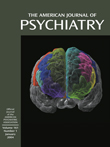Obsessive Compulsive Disorder: Practical, Tried-and-Tested Strategies to Overcome OCD, 2nd ed.
This is an interesting self-help book written principally by a distinguished experimental psychologist who suffers from obsessive-compulsive disorder (OCD). It is divided into four main parts. The first is an account of the life of the primary author, who displayed obsessive traits in early life and developed OCD at 30 years of age. The second is an account of the professional services offered by clinical psychology and psychiatry. The third is an account of the lives and thoughts of famous people who have suffered OCD, and the last is self-help advice.
The section dealing with the author’s life and experiences would be of interest to sufferers, families, and students alike. Textbooks too often paint simple pictures, and it is only when the clinician grapples with his or her first case of OCD that the complexity of cognitions in this illness are appreciated. For the student, this account gives a unique taste of things to come.
The section dealing with the available professional services is a reasonable picture for sufferers and families. There are some shortcomings: flupenthixol is misspelled and described as an antidepressant. The statement that “we can say that, of all the techniques available, behavior therapy offers the most hope” may reflect bias.
The section dealing with the lives and thoughts of famous people who have suffered OCD is very interesting. It is comprehensive and will demonstrate to patients and professionals alike that it is possible to do well in life in spite of OCD. The section dealing with self-help is superficial, but the authors make points that are easily overlooked—that keeping busy, getting out, and taking exercise can make valuable contributions. An important, twice-made statement is, “I feel that it is a bit like having a wooden leg or a tendency to epilepsy—life would be much better without the difficulty or disorder but one can still make the best of it.” The book does not deal with the occasional difficulty of deciding about the presence or absence of psychotic thinking, or with the curious clinical presentations of patients with clean hands and filthy clothes/homes.
There is no doubt that Dr. Toates has suffered dreadfully and deserves praise for revealing his difficulties for the benefit of others. It has to be said, however, that had his OCD been at the severe end of the spectrum, he would not have been able to write his book. Severe OCD has been ignored.
This is a good book. It will provide encouragement to sufferers and is an excellent introduction for students from a wide range of disciplines.



